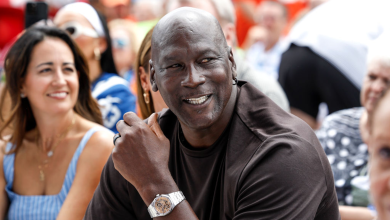Brookings Metro Launches Dashboard To Bridge The Racial Wealth And Black Business Ownership Gaps


Cities across the U.S. have a clear opportunity to boost their economies by increasing the number of Black-owned businesses that serve as employers.
Recognizing this potential, The Brookings Institution’s Metro Center for Community Uplift initiative is on a mission to help communities, policymakers, and grassroots organizers understand the crucial role of Black entrepreneurship.
In June 2025, Brookings launched the Black Business Parity Dashboard. The dashboard shows the number of businesses and jobs, as well as the potential revenue and payroll generated if Black business ownership were to match the Black population in metro areas, according to a Brookings news release.
Brookings’ research indicates that Black Americans outperform the national average in entrepreneurial traits tied to business success. However, systemic financial barriers — such as limited access to credit and the long-standing denial of wealth-building opportunities — have hindered growth.
Centuries of denying Black Americans the right to ownership have exacerbated the racial wealth gap. As of 2022, the wealth gap between Black and white Americans stood at $240,120 per household, according to the Brookings Institution.
Businesses with at least one employee have a proven path to closing that gap. In 2024, the median wealth of those businesses was $550,000, compared to $135,000 for non-employer owners, according to Gallup research.
While the number of Black-owned businesses has increased, there is still much room for improvement.
According to a LendingTree analysis, the number of Black-owned businesses increased by 22.2% year-over-year since 2019, a trend previously reported by AFROTECH™. As of 2024, Black Americans make up 13.7% of the U.S. population, U.S. Census Bureau data shows. However, they only own 3.3% of businesses.
If the trend continues and Black business ownership reaches parity with population share, the U.S. could gain 757,000 new businesses, 6.3 million jobs, and $824 billion in additional revenue, according to Brookings.
“Certainly any growth is welcome and important, but there’s such a long way to go,” LendingTree Chief Credit Analyst Matt Schulz told Inc. The 22.2%, he noted, “is almost more indicative of just how low a place it started, as opposed to how high it actually went.”
While parity won’t happen overnight, Brookings Metro’s Black Business Parity Dashboard provides local leaders, residents, and advocates with a roadmap to measure progress and design programs that support Black entrepreneurs, according to the news release.




